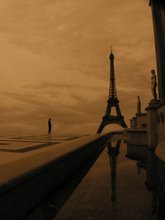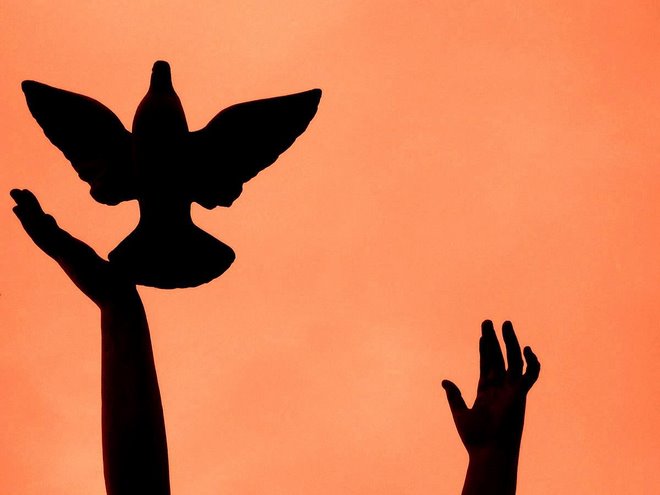Sunday: In 1970 there was a law suggested that would eliminate the estate tax. The estate tax heavily taxed people who inherited more than $7 million dollars. A survey was taken of factory workers which found that the vast majority of them opposed the law to abolish the tax, even though they barely made enough to save anything for their children, must less $7 million. Why were they opposed? They said that they might be rich some day, and that they wanted to pass their money on to their children without taxes. I think that shows the strength of the American Dream better than anything!
Monday: Interesting Person Review: During political unrest in Nicaragua in late 1800s, one political group recruited a few dozen adventurers lead by the American William Walker, who were supposed to be missionaries of "Progress". But the plan backfired when Walker got bored of teaching "civilized" life to the country, and thought it would be more interesting to declare himself President of Nicaragua. He wanted to "Americanize" the country, so he declared freedom of worship, made English the national language, gave large land grants to Americans, and made slavery legal (though it had been abolished in Nicaragua years before). But soon the military got fed up with Walker, and they caught and executed him, thus ending America's short direct reign in Latin America.
Tuesday: Science: (correct me if I'm wrong science guys!) The human eye can actually see a part of the "electromagnet spectrum." The best example is in a rainbow we see the different wave-lengths of the light. Red has the longest wave-length, purple the shortest. On the electromagnet spectrum these visible colors are 0.7 to 0.4. So imagine all the colors and light that you CAN see, and then think about the fact that the human eye can see less than 1/1,000,000 of the electromagnet spectrum. (here's a pretty good simple article: http://imagers.gsfc.nasa.gov/ems/visible.html).
Wednesday: Say What? When the British occupation of India came in 1947, there was a severe problem of Hindi and Muslim conflicts. So it was decided that India would break into two countries, Hindi India and Muslim Pakistan. The British created the geographic borders, and very creative borders they were. The plans didn't consider any pesky geographic details, it simply made areas with a Muslim majority Pakistan, and the rest India. That meant that "Pakistan" was actually two separate areas, almost 1000 miles (1700 K +/-) of Indian territory. Check out this map: http://en.wikipedia.org/wiki/Image:Partition_of_India.PNG. The two areas were called West Pakistan and East Pakistan, and even though they were 1000 miles apart, with very different cultures, identities, and appearances, they were expected to act as one country. They actually did (sort of) until 1971, when East Pakistan rebelled and demanded independence. There was an interesting conflict involving USA, USSR, China, India, and ships with nuclear missiles. But that's another story. In the end, East Pakistan gained its independence and became Bangladesh.
Thursday: There are currently only 11 countries with a population over 100 million people. Some of the countries are exactly what you'd expect: China, India, USA, Russia, and Japan, are expected members of the "100 club," but I was surprised that Indonesia has almost 235 million people, that Brazil, Pakistan, and Bangladesh have over 150 million, and Nigeria and Mexico are also in the club. The next probable member? The Philippines currently has a population of 90 million, and Vietnam of 85. Check out: http://en.wikipedia.org/wiki/List_of_countries_by_population, and especially this amazing population clock for India: http://www.mnsu.edu/emuseum/information/population/country.php?FILE=IN&NAME=India
Friday: Actually: In 1941 Japan was desperate for oil to fuel its empire ambitions, and the closest source was Indonesia, which was help by the Dutch. But Japan knew that America would never allow them to invade the Dutch colony, since the two countries had been on the verge of war for several years, so they planned to take America out of the equation by attacking the fleet at Pearl Harbor. People usually think that Japan wanted to start a war with America and so made the first strike, but actually there was not one Japanese general who thought that Japan could survive a long-term war with the US. The plan was to hit the US navy hard enough to put them out of activity in the Pacific for 4-5 years and then negotiate a peace deal with them after they had cooled off.
In fact, the attack didn't have the affect the Japanese wanted. In the attack on Pearl Harbor in 1941 about 300 US planes were destroyed. By 1943 the US could build 300 planes every two days. Also, every large ship except one that was sunk in Pearl Harbor was raised and repaired. Many of these ships played vital roles in future battles against Japan.
Saturday: The US actually leases the property of Guantanamo Bay from Cuba, even though the current Cuban government isn't officially recognized by America. Every month the US writes a check for Cuba to pay for the lease. The cost is in accordance with the 1934 lease agreement which dictated $2000 in gold a year, which equals $4,085 a year today. But in 48 years of getting checks, Fidel Castro hasn't cashed a single one.
Correction: Last week I told the story of the Czech soldiers who traveled to Siberia in WWII. Actually it was WWI. (Thanks Dr. Wilson for the correction!)
Welcome to the Penguin's world! Come in and Discover!
Hello friends! I hope you enjoy looking around my blog. I'm planning to keep it updated with pictures, stories, and news of my latest experiences... but since I'm not having too many extreme adventures lately, I'll keep you informed regarding what I'm learning. Very interesting stuff! At least, I think so. I've realized more and more how huge the world is (I know, cliché, but REALLY!), how much cool stuff there is to discover, and what a waste it would be if I just sat back and lived out my life. This blog is an attempt to keep my eyes open, and I hope it will inspire everyone who reads it to do the same. Each week I'll post a list of seven things I discovered about the world that week, and you can check them out on the right in the "Discover Something New" section, or just scroll down to see the most recent one. I hope you find them as fascinating as I do!
As for the Penguins, well, if you don't know what that's about, then I probably don't know you well enough for you to be on my blog! Scat!
For everyone else, Quack Quack, and enjoy. :-)
-Caleb
Subscribe to:
Post Comments (Atom)



1 comment:
Great work.
Post a Comment